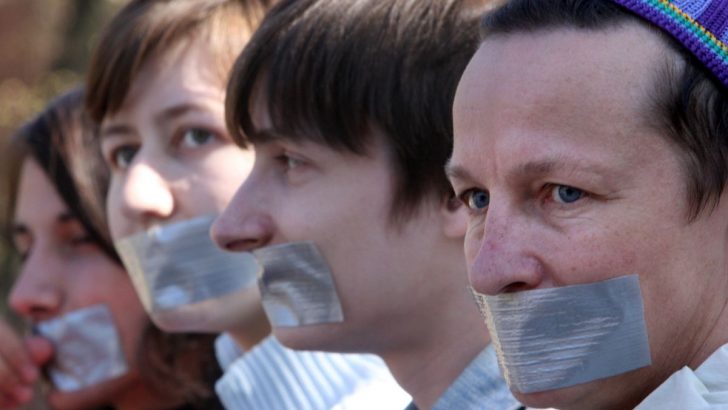A backlash of stymied voices is developing, writes David Quinn
One of the many things highlighted by the victory of Donald Trump in the US, and Brexit in the UK, is that a lot of people are sick and tired of political correctness. Those who are sick of it appear more likely to have voted for either Trump or Brexit. Those who broadly support political correctness were more likely to have voted against Trump and Brexit.
But what does the public overall think of political correctness? A new poll from Amarach Research answers the question. The poll is based on identical polls conducted in the US and Canada and basically it shows that we have mixed feelings about it.
Before proceeding, however, let’s consider what political correctness is. A lot of people think it is simply about being polite. It is about not saying things other people will find offensive.
That doesn’t quite capture it though, because it is perfectly acceptable to be as offensive as you like about certain groups, Catholics for example, or Evangelical Christians, or white males. They are fair game. Why is that? Why are they fair game but women, non-white ethnic groups, Muslims and gays are not?
Powerless
The reason is that the former groups are all considered to be powerful whereas the later set of groups are deemed to be relatively powerless minorities who must be protected. It is permissible to offend powerful groups, but not powerless groups. So political correctness is, to be more precise, about protecting ‘powerless’ minority groups from offence.
Surely this is a good thing? It is, up to a point, but clearly it can go too far. Here are some examples of it going too far: calling someone an ‘Islamophobe’ because they don’t go along with the line that Islam is a ‘religion of peace’, full stop; calling someone a ‘racist’ because they don’t agree with mass immigration; saying someone ‘hates’ women because they oppose abortion; calling someone a ‘homophobe’ because they don’t believe two fathers are the same as a mother and a father.
Denouncing people as ‘bigots’ for believing certain things, even eminently reasonable things, is a shaming tactic and all moral systems everywhere (including Christianity) have used shaming tactics to enforce their moral codes.
People eventually got sick of authoritarian Christianity because it overused the shaming tactic, and now they are growing tired of political correctness for the same reason because it is also overusing the shaming tactic of too readily denouncing people as ‘bigots’.
The headline finding of the Amarach poll is that 76% of Irish people agree with the statement, ‘political correctness has gone too far’. That is a big warning shot across the bows of those who love to shout ‘bigot’ at everyone who disagrees with them.
The result was closer when people were asked which of two statements they most agreed with. One was that people should be more careful about the language they use to avoid offending people with ‘different backgrounds’. Forty-three percent of respondents agreed with this.
But 57% agreed with the contrasting statement that “too many people are offended these days by the language other people use”.
Still and all, even this finding shows a majority of people don’t much care for political correctness.
Supporters of political correctness can take more comfort from the level of agreement with the statement, “People who complain about political correctness just resent that they cannot say anything they want to anymore”.
Sixty-two percent of people agreed with that statement versus 38% who disagreed. Overall, I think the poll shows that people agree with political correctness up to a point, but not past a certain point.
That is, they agree that we shouldn’t use unmistakably offensive language about minority groups, for example, using the ‘N’ word about Africans, or displaying indisputably racist or sexist attitudes, for example Donald Trump’s attitude towards women displayed in that infamous tape which turned up in the closing stages of the US presidential election.
On the other hand, people clearly feel that the enforcers of political correctness are far too ready to take out the club and use it to beat anyone they disagree with. They feel words like ‘bigot’ are used to close down too many perfectly legitimate debates. In this country, there is almost no debate at all about immigration, for instance, because almost everyone who opposes mass immigration is terrified of being called a ‘bigot’.
Referendum
In last year’s marriage referendum, almost three-quarters of a million people voted No (against the 1.2 million who voted Yes), but out of the almost 750,000 who voted No, only a few dozen were willing to say so publicly. The rest stated silent in case they were called ‘homophobes’.
It is, of course, hard to define precisely when political correctness goes too far. When does a legitimate desire to stamp out obviously offensive attitudes become an illegitimate desire to stamp out legitimate debate?
I’ve already indicated some of them. A person does not ‘hate’ women simply because they oppose abortion. They do not ‘hate’ Muslims because they think it is too simplistic to say that Islam is a ‘religion of peace’, without any further analysis.
There is a warning in this poll for politicians, for the media and for the enforcers of political correctness generally. It is this; despite some support for the general aim of political correctness (protect minorities), there is a clear feeling it has gone too far and a backlash is developing. Politicians and media who fail to spot this will lose support and could be swept out to sea as quickly as their counterparts were in the US and the UK.
The enforcers of political correctness, for their part, ought to heed the warning that they are completely overusing their shaming tactics and if they continue to do this, people will soon pay them no attention at all, even when their warnings of bigotry are warranted.


 David Quinn
David Quinn Political correctness
Political correctness 